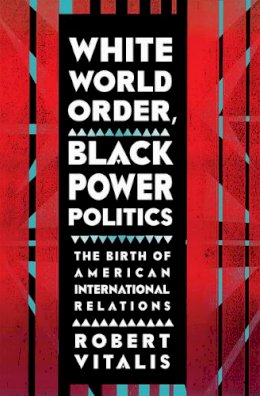
White World Order, Black Power Politics: The Birth of American International Relations
Robert Vitalis
Racism and imperialism are the twin forces that propelled the course of the United States in the world in the early twentieth century and in turn affected the way that diplomatic history and international relations were taught and understood in the American academy. Evolutionary theory, social Darwinism, and racial anthropology had been dominant doctrines in international relations from its beginnings; racist attitudes informed research priorities and were embedded in newly formed professional organizations. In White World Order, Black Power Politics, Robert Vitalis recovers the arguments, texts, and institution building of an extraordinary group of professors at Howard University, including Alain Locke, Ralph Bunche, Rayford Logan, Eric Williams, and Merze Tate, who was the first black female professor of political science in the country.Within the rigidly segregated profession, the "Howard School of International Relations" represented the most important center of opposition to racism and the focal point for theorizing feasible alternatives to dependency and domination for Africans and African Americans through the early 1960s. Vitalis pairs the contributions of white and black scholars to reconstitute forgotten historical dialogues and show the critical role played by race in the formation of international relations.
Product Details
About Robert Vitalis
Reviews for White World Order, Black Power Politics: The Birth of American International Relations
Carol Polsgrove
American Historical Review
Robert Vitalis wants his discipline to understand not only how central the category of race and the structures of racism were to its founding institutions and paradigms but also to see the erasure of that history not as progress but as repression, a willful forgetting that has if anything made it less equipped to comprehend (much less to address) the shocking racial inequities that still mark both the American and the global order. If international relations scholars want to understand the racial politics that made their field what it is today, there is no better place to begin than with this righteously angry book.
Susan Pederson
London Review of Books
There is much to commend in Vitalis' book which is filled with fascinating vignettes and unexpected connections. He writes with clarity and passion, especially in the book's opening and close, to ensure that whilst ample room is given for the reader to make their own way through the material, it is never an aimless wander.
Jake Hodder
Journal of Historical Geography
The book stands out for how it critiques how institutions reproduce, often in an unconscious manner, the foundational assumptions of an academic discipline.... Vitalis has also contributed to the vibrant and expanding scholarly study of radical Black transnational intellectual history by engaging with a largely-overlooked dimension of the work of important figures in the history of Black radical thought such as Locke, Williams and Bunche, showing how those thinkers worked within and against formal academic structures to criticize the racist and imperialist dynamics of international relations scholarship.
National Polticial Science Review
